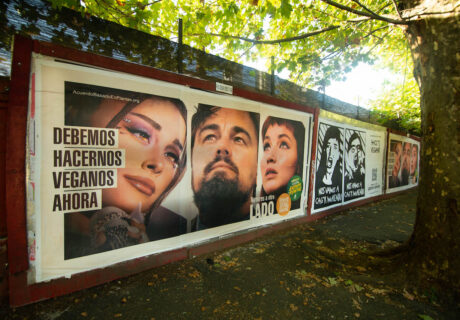Fairtrade Fortnight begins today to educate, engage and inform people about the harmful impact of the climate crisis on food producers and supplies.
Marking this year’s campaign is new data published by the Fairtrade Foundation which reveals that in 2022 60% of the British public remain unaware of the extent to which cocoa, coffee and banana yields are set to decline over the next three decades as a result of climate change.
The data comes from a consumer survey commissioned by the Fairtrade Foundation and carried out by Opinium which identifies a number of gaps in public awareness of the obstacles and inequalities faced by millions of farmers and producers worldwide.
Three quarters (78%) of the public say it’s important for overseas producers of tea, coffee, flowers, cotton, food and other staples to have the ability to adapt to climate change; but 60% are unaware of the tangible impacts that climate change poses to the UK supply of such goods.
The survey was conducted following the release of research from VU Amsterdam and Bern University of Applied Sciences which showed that adverse climate conditions will trigger ‘drastic decline in banana yields in ten countries’ – including Brazil, India and Colombia – over the next three decades. In cocoa cultivation, 89.5% of land could become unsuitable by 2050 if the world sees a temperature rise of 2.1°C.
The results also indicate that although ‘public understanding of the links between decent incomes for farmers and climate resilience is low’ there is a ‘strong public willingness to address inequality caused by exploitative trade and climate change’. Two thirds (67%) would choose not to purchase a product ‘if they knew it was linked to human rights abuses or exploitative trading practices’. Just 27% of Brits have gained greater awareness of the colonial exploitation which occurred at the hands of the British Empire, while 16% believe harmful trade ‘is a thing of the past’; this figure rose to 35% in those aged 18-34.
Farmers in low-income countries are already using their expertise to tackle climate change, but they urgently need more resources
Seven in ten (70%) Brits believe the responsibility to take action against harmful trade practices falls on governments, and a similar number (66%) believe the same of climate change – 62% assert that the UK Government ‘should treat the climate crisis with the same urgency as the COVID-19 pandemic’.
Michael Gidney, CEO of the Fairtrade Foundation, says: “It’s clear that the public want to see an end to trade that exploits those who produce the commodities we rely on every day – particularly in the context of climate. Cocoa brings so much joy to anyone who loves chocolate, but more needs to be done to ensure that farmers growing these products are supported to live and work well, and build their resilience to the devastating impacts of the climate crisis. Farmers in low-income countries are already using their expertise to tackle climate change, but they urgently need more resources and decent incomes to do so. Through Fairtrade Fortnight, and the Choose the World You Want Festival, we want to help more consumers to recognize the role they have in helping farmers and workers adapt to climate change. By choosing Fairtrade, they can make a real, tangible difference to the lives of people who grow much of the food we love to eat in the UK.”
In West Yorkshire, a giant grass painting of Bismark Kpabitey – a Fairtrade cocoa farmer and member of the Kuapa Kokoo Farmers Union in the Ahafo region of Ghana – has been commissioned by the Fairtrade Foundation to help consumers make the link between what they eat and the people who produce it.
Kpabitey, who attended COP26 on behalf of Fairtrade, comments: “Looking at the situation now it is very difficult to go into agriculture because the rainfall pattern has changed. There is a long drought – currently we are experiencing a very hot sun, which is affecting our crops and has really reduced production. And once production is reduced, financially you become handicapped. That is the challenge.”





